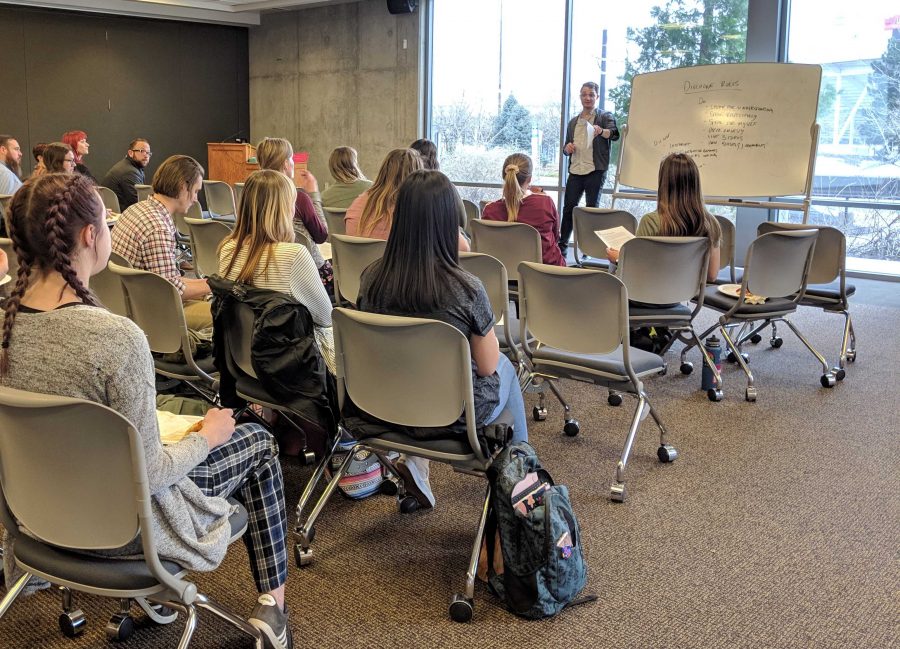When faith and sexuality collide, stories involving personal feelings of grief and loss experienced by those in Utah and the University of Utah’s LGBTQ+ community are common. “Grief, Faith, and Gay: Coping with Loss when Faith and Sexuality Collide” was hosted by the U’s College of Social Work on March 27 in order to address “what happens when faith and sexuality are at odds with each other,” according to Josh Henricksen.
Henricksen organized and led the hour-and-a-half workshop in front of an audience of about 30 students. He said “discussion will center on expectations we set for ourselves and that others place upon us, the grief and loss process, and how to utilize self-compassion as individuals navigate this space.”
The workshop began with an icebreaker for participants to become more comfortable sharing their thoughts and experiences. This was followed by discussions surrounding methods to engage in “difficult conversations,” such as ones surrounding loss, sexuality and religious beliefs. From there, participants engaged in two activities that involved writing down ways in which they have been socialized to process religion and sex/sexuality.
When asked how he thinks that the dominant religion in Utah/Salt Lake impacts the relationship that individuals have between sexuality and faith, Henricksen replied, “I am no expert and would not assume that I know the details of everyone’s experiences. Speaking from my own experience in this area, I see a pattern of fear and shame for that which is ‘other’ in regards to sex and sexuality. Fear because it is different and then shaming of it to one, make the individual doing the shaming feel better, and two, try to coerce the different into submission.”
Colby Judd, a senior majoring in physics and astronomy at the U wrote, “Coming from a rural community in Utah, the LDS church and religion was usually the largest influence in the community. This played a huge role in expectations about family and from the age of six I was told the most important thing I could do was get married to a woman and have kids.”
“Despite knowing I was gay early on in high school, it wasn’t until college that I could finally overcome these ingrained expectations of family and accept my queer identity, along with the idea that I too could have a family,” Judd said. “Recent policy changes by the church have made this journey more difficult for queer individuals who now find themselves trying to juggle a community who now will ‘welcome’ them, as long as they don’t ‘violate’ this image of family.”
Audience members learned about how they themselves can navigate grief and loss, as well as how they can help others through elements of self-compassion. Another program presenter addressed the three elements of self-compassion: self-kindness, common humanity and mindfulness.



Rev. Kōshin Kelly Casey, Zen Buddhist Priest & Interfaith Chaplain, M.Div. student, United Theological Seminary of the Twin Cities • Apr 4, 2019 at 5:03 am
Randall,
I pray no one you know is gay. Your thoughts here are so simplistic, unimagitive and discompassionate. The world is not so black and white. As an ordained priest and interfaith chaplain, I have been called to the intersection of the grey parts of our lives, the places in which you seem to abandon the call to witness unconditional love. One does not hate the sin but love the sinner. I believe there is no room for hate in the kingdom of G-d.
For my LGBTQA+ siblings, we are all Imago Dei.
Randall • Apr 3, 2019 at 4:05 pm
It is very simple, when you choose to be gay, you are abandoning Christian beliefs. If you want to avoid grief, then choose to follow the teachings of your faith.